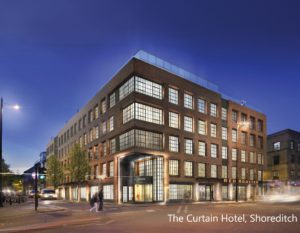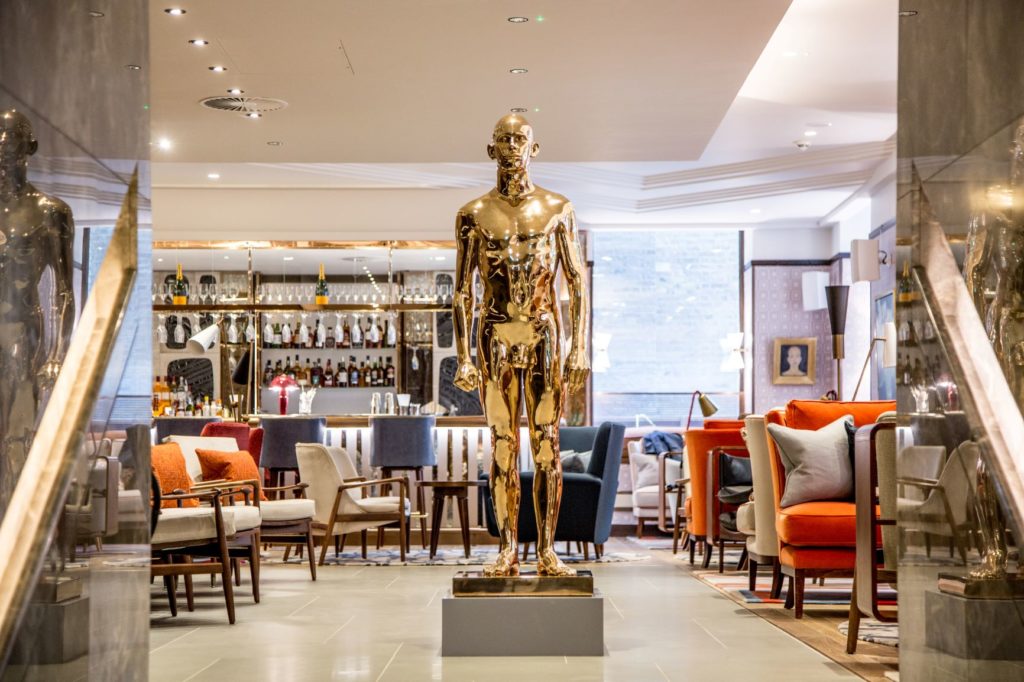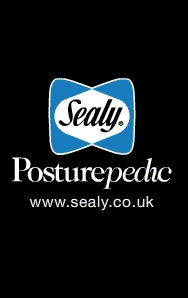An interview with Harry Harris
Having been instrumental in the development of one of Shoreditch’s most exciting new hotels, Harry Harris, Managing Director of SUSD London, chose to sell. In a statement to the press he said:
.
“We’re delighted with the sale and how quickly The Curtain has shown its value. We’ve been involved with this project from the very beginning, from the inception of the idea itself through to acquiring the site, securing funding, design and construction management and now in helping to facilitate the sale and leaseback agreement. Our background in hybrid hotels and members’ clubs, and our understanding of the growing demand for convergence properties that provide co-working and living spaces with a lively cultural offer, is what prompted us to choose this model for The Curtain. It’s great to see how warmly The Curtain been embraced by the Shoreditch crowd and its future looks very bright under the ownership of the Reubens.”
.
.
Why was the Curtain hotel sold?
It was always our strategy to either re-finance or sell after completion. So, we began to explore our options, and it was clear there were a high number of investors looking to acquire hotels on favourable sale and lease-back terms. Our ambition was to realise capital and profit to reinvest in our next project and repay the debt on the Curtain whilst retaining a long leasehold over the property. The sale to the Reuben brothers has allowed us to achieve both.
.
.
What have you learned from your involvement there?
.
Every multi-million-pound development brings challenges that you can learn from. This project highlighted the need to have a project team with strong hotel experience. It was a major construction project, not least going 20 metres down to create most of the member’s club spaces.
.
Did those experiences help form what you’ve done with the Devonshire Club?
.
Whilst the Devonshire Club came first, we have certainly adapted its offering since working on The Curtain. The nature of members’ clubs is that they are always evolving, and it is vital that we listen to our members to ensure their interests are catered for. Even though Devonshire Club and The Curtain are a stone’s throw from one another, their target audience couldn’t be more different: the Devonshire Club is a hub for the City’s financial, legal and business elite whereas The Curtain is aimed at the creative, East London market. Their offerings are therefore not the same but both demand spaces that cater specifically for the work, live and play expectations of the members as well as events programmes that capture their attention and, in doing so, keep members’ loyal.
.
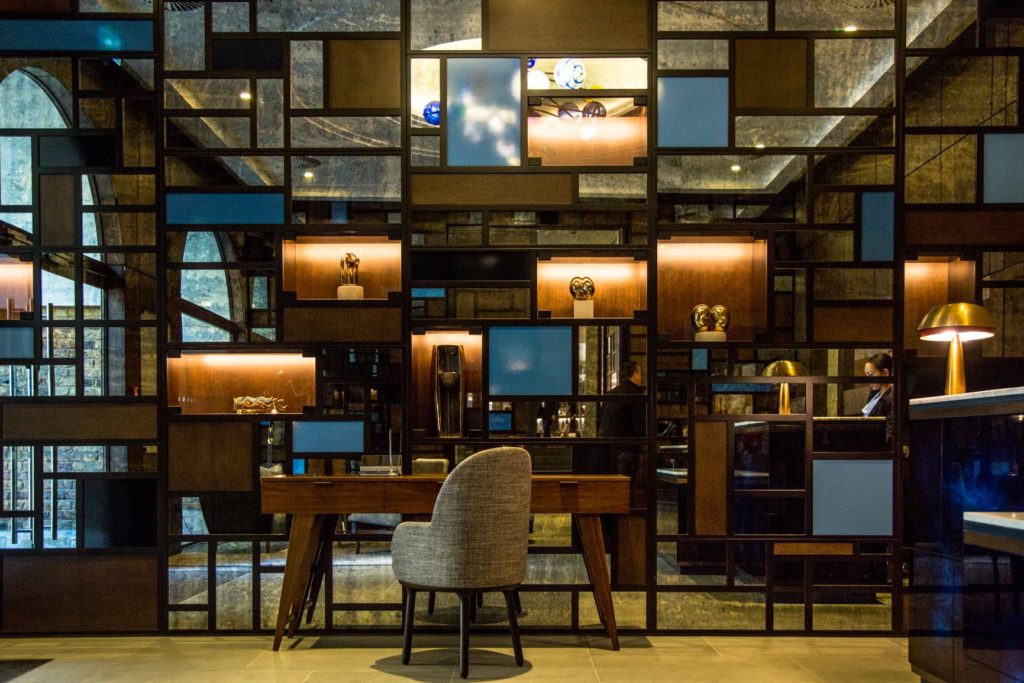
.
Do you think there’s been a renaissance or renewed interest in private members’ clubs and why?
.
Yes, very much so. Private members’ clubs are not new however, the evolution of the modern working pattern means that – to some extent – millennials and Gen Z are a “tribe” that live and work in similar ways to the privately wealthy elite of the nineteenth century.
We are moving into a subscription economy where people buy into what they want, when they want it. People are looking for greater individuality whilst at the same time seeking shared experiences, not only in their private lives but in their work environment too.
In recent years, there has been a shift away from rigid working structures, and a move instead towards mobile, social and creative ways of working that are tailored towards the individual. These agile co-working models mean that clubs are an ideal solution, allowing convergence between socialising and working, and giving wandering workers a home-away-from-home where they can connect with their tribe.
.
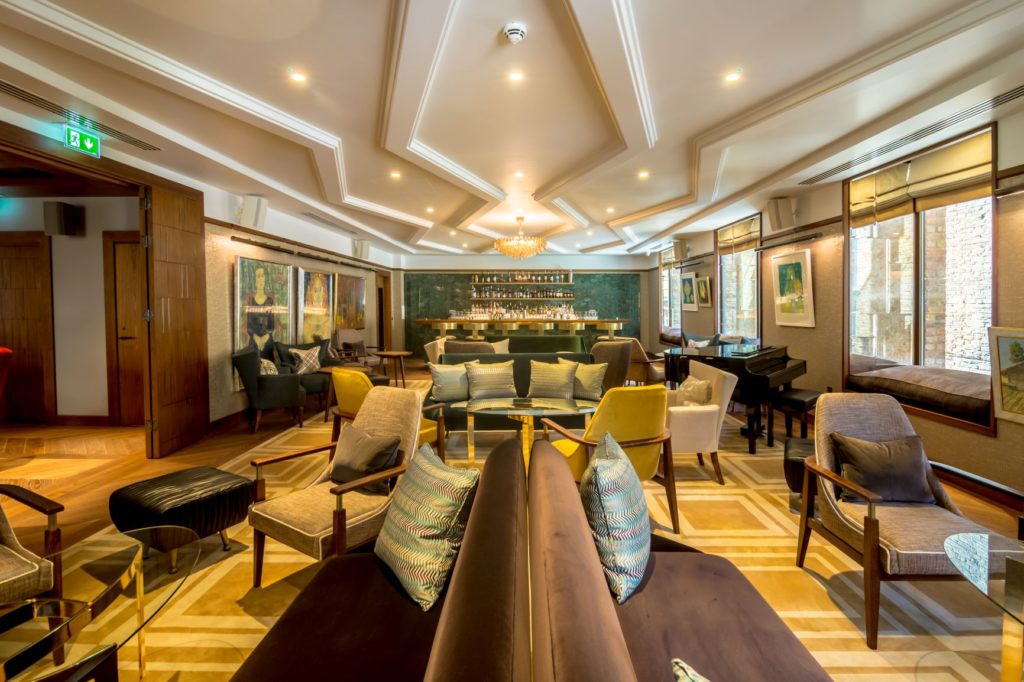
.
Devonshire Club seems to be very successful. What’s special about it?
.
For me it is the atmosphere and environment, it has a richness and beauty that immediately feels comfortable and the staff are fantastic, with a relaxed formality that immediately making everyone who enters feel comfortable and like they belong. This creates a haven from the super-busy financial quarter mixed with a hint of hedonism – a combination that resonates with the financial community in the City.
.
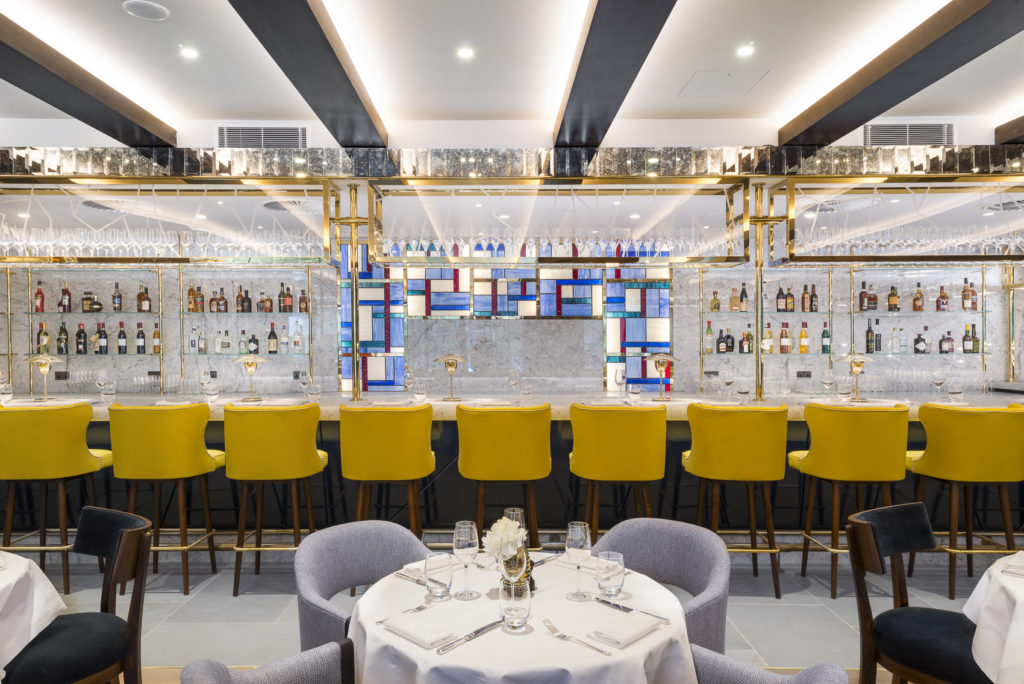
.
Do members use it as their work space?
.
Most of our members see the club as satisfying several criteria: a place to work on their laptops or hold meetings; a social hub full of like-minded people; a gym that they can use at their leisure; and a venue with an exciting cultural programme. Modern working habits now allow people to work from many different locations, so this is what we provide in terms of spaces. The club also creates the perfect environment for networking, deal-making and transacting, and we find that our members use it for all of these as well as socialising.
.
You’ve talked about ‘massive lifestyle changes’ in the UK that you believe will affect hotels. What are those changes?
.
The ‘subscription’ and ‘sharing’ economies are in their infancy but have already led to structural shifts in the hotel and workplace sectors. The market is rapidly becoming fragmented and having to change to accommodate disruptors like AirBnB and WeWork. Corporations are transforming to gain a share of a market that places high expectation on individuality whilst creating shared experiences.
.
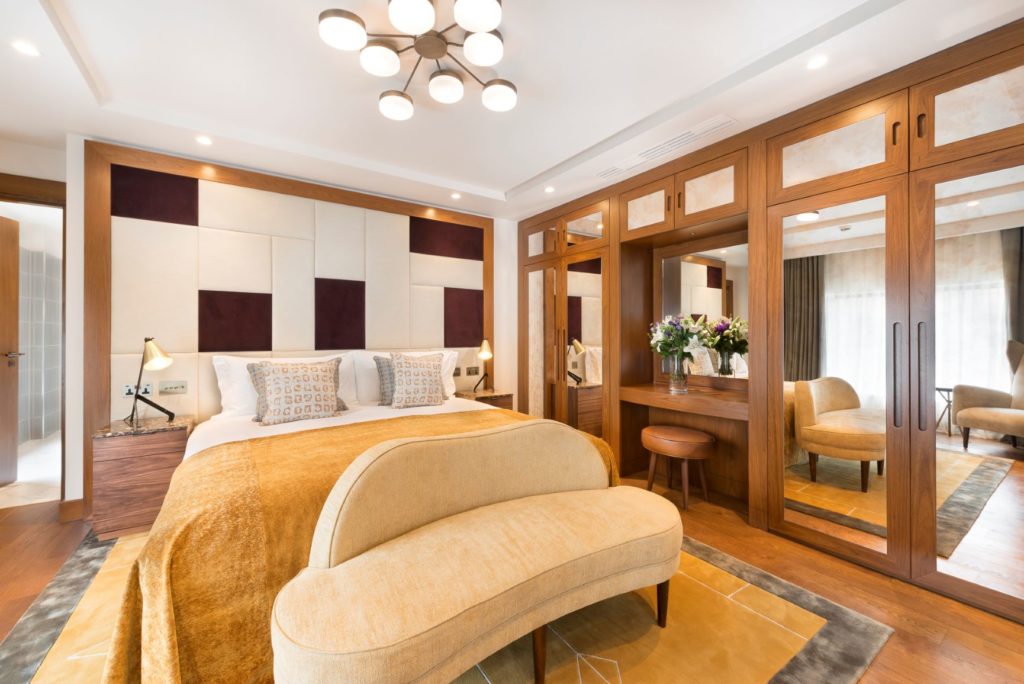
.
You’ve said you believe alcohol sales will suffer as fewer people drink. How will hoteliers replace that wet sales revenue?
.
All indicators suggest that young people are drinking less alcohol, placing quality over quantity. Nutrition and well-being are also becoming more prominent in peoples’ lives. I don’t necessarily believe alcohol revenue will dramatically fall, but the quality of the offer and how it is paired with a more balanced diet and lifestyle will be a major consideration. We find that many members come and enjoy fitness events as a social experience and will then have a drink and socialise afterwards.
.
Will live performances help draw in new customers?
.
I am really proud to have a wide variety of live performance events at the clubs we are involved in. Live performance has a long-established history in London and serves as an outlet for cultural expression and development. This resonates with our members who want to feel a part of a movement and wish to support the Arts.
.
You are a fan of Ian Shrager’s PUBLIC hotels. Why?
.
I’m a fan of everything Ian Schrager does; he is a bold visionary. PUBLIC in NY is a striking design and takes the entertainment and live performance space a step into the future. I think PUBLIC creates a backdrop for people to have fun and socialise in such a successful and uniquely un-branded way and I think we will be seeing a lot more of this throughout the industry in the near future.
.
What do you believe hoteliers should focus on in the coming decade to be successful?
.
Hotels seem to be evolving into two groups: the individual or boutique group, and the branded group. I think the branded groups have already taken successful elements from the entrepreneurial one-offs but both groups will be driven more and more by services tailored to the individual. Clubs can already offer this as they have intimate knowledge of their members and capture significant data on spending habits of the individual, which is why I believe they work so well in tandem with hotels as a convergence model and value-added proposition.
Technology is a big enabler in this. The member or guest experience can be hugely improved by AI and data collection in tailoring the offer for individual tastes and interests.
.
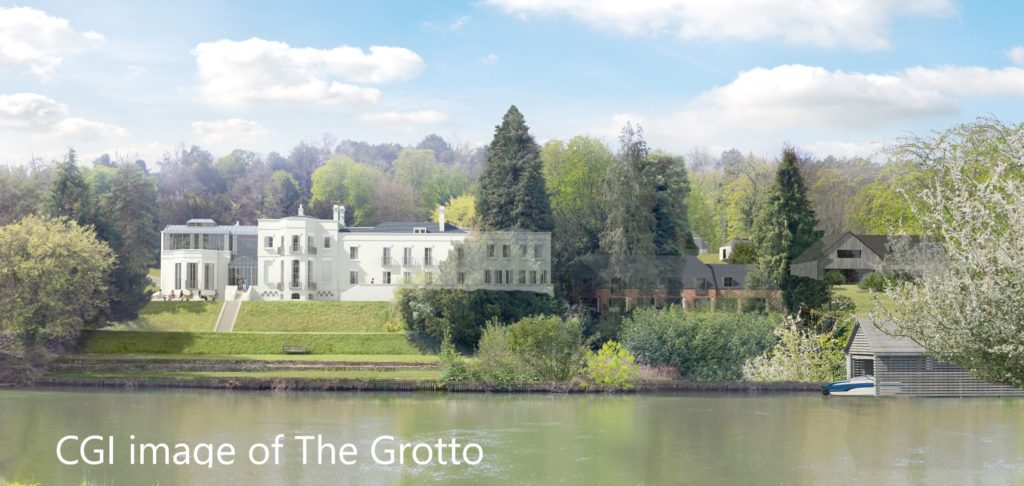 .
.
Your next hospitality project is underway. Can you tell us a bit about The Grotto?
.
The Grotto will capture more of the wellbeing and workout philosophies we have developed in our London locations, taken to a new level at The Grotto not least because we have ten acres of land along the Thames. This will include offerings such as produce from our own seasonal kitchen garden, and the teaching of holistic medicine techniques that combine natural products with mental, physical and emotional healing, and the latest in technological health metric analysis. Taking its cue from the move towards a modern style of informal luxury, The Grotto will encompass a Grade II listed country house with a modern spa and wellbeing centre and will also give guests the opportunity to ‘glamp’ out in timber lodges in the grounds. All-in-all, it will provide visitors with a rejuvenating and luxurious escape that is tailored to their needs and interests.
.
Finally, have you ‘prepared’ for Brexit? If so, what have you done?
.
The majority of the workforce in hospitality in London are non-UK EU employees. They are quite rightly nervous about the outcomes next year especially freedom of movement of labour. With 4% unemployment levels in the UK there is insufficient labour to fill positions and inflation is already having a major impact. We are working with our employees and partners to try to ensure they are well informed of the legislation changes but at the moment we are all still in the waiting lounge.
.
Unless otherwise stated, all photographs above are of The Devonshire Club, a modern members club and hotel, which can be found in Devonshire Square in the City of London






